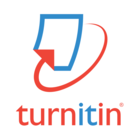Application of Model Problem Based Learning Assisted Blended Learning on Cognitive Knowledge of University Students in Analytical Chemistry Instrument
Abstract
This study aims to determine differences in cognitive knowledge of students who are taught with a problem based learning aided by blended learning on the material of the uv-vis spectroscopy. This study uses a cognitive knowledge test instrument that has content validation of 87,92% with very good criteria and a Cronbach Alpha reliability coefficient of 0.653 in the high category. The research was conducted at the Universitas Negeri Manado in two classes. The experimental class was taught by the problem based learning model assisted by blended learning and the control class that was taught with a problem based learning model. The results showed a statistically significant difference in students' cognitive knowledge in both study classes (α = 0.050).
Keywords
Full Text:
PDFReferences
Arends, R. I. (2012). Learning to Teach. 9th Edition.
Cindy E. Hmelo-Silver1, 2. (2004). Problem-Based Learning: What and How Do Students Learn? Educational Psychology Review, 16(3), 235–266.
Delialioglu, O., & Yildirim, Z. (2007). Students’ perceptions on effective dimensions of interactive learning in a blended learning environment. Educational Technology and Society, 10(2), 133–146.
Dobrzański, L. A., & Brom, F. (2008). E-learning on the example of materials science. 29(1), 99–102.
Donnelly, R. (2006). Blended problem-based learning for teacher education: Lessons learnt. Learning, Media and Technology, 31(2), 93–116. https://doi.org/10.1080/17439880600756621
John, E., Kay, M., & Lynch, H. M. (2003). E-learning: emerging issues and key trends. In Flexible Learning (Issue September).
Kaku, M. (2011). Title Page Copyright Predicting the Next 100 Years. Reading.
Licker. (2003). Dictionary of Chemistry.
Rusman, Kurniawan D., & R. C. (2012). Pembelajaran Berbasis Teknologi Informasi dan Komunikasi: Mengembangkan Profesionalitas Guru. PT. Rajagrafindo Persada.
Schraw, G. (2007). The use of computer-based environments for understanding and improving self-regulation. Metacognition and Learning, 2(2–3), 169–176. https://doi.org/10.1007/s11409-007-9015-8
Wonorahardjo, S. (2013). Pengantar Kimia Analitik Modern.
DOI: http://dx.doi.org/10.17977/um047v27i22020p073
Refbacks
- There are currently no refbacks.
Copyright (c) 2021 Varisky Abraham Dumanaw, Surjani Wonorahardjo, Hayuni Retno Widarti

This work is licensed under a Creative Commons Attribution-ShareAlike 4.0 International License.
INDEXED BY |
TOOLS | PLAGIARISM CHECK | ARTICLE TEMPLATE |
| Research Article Non Research Article |

JPP (Jurnal Pendidikan dan Pembelajaran) is licensed under a Creative Commons Attribution-ShareAlike 4.0 International License











_2.png)
_.png)